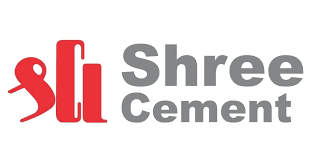· To address this health concern, experts at JIPMER Puducherry have innovated a new robotic-assisted surgery technique to perform pancreatic cancer surgeries more effectively
Pudhucherry, India – November 20, 2024: On World Pancreatic Cancer Day, health experts are sounding the alarm as pancreatic cancer cases continue to rise sharply across southern India. According to recent statistics from the Indian Council of Medical Research (ICMR), the incidence of pancreatic cancer in southern states has increased by 30% over the past decade, with nearly 50,000 new cases diagnosed annually in India. This alarming trend places a significant burden on the healthcare ecosystem, highlighting the urgent need for early screening and effective treatment options.
Pancreatic cancer, known for its high mortality rate, is often diagnosed at an advanced stage due to subtle early symptoms such as abdominal pain, jaundice, and unexplained weight loss. Risk factors prevalent in southern India, including high incidence of chronic pancreatitis, smoking, obesity, diabetes and a diet high in fats and carbohydrates, contribute to the increasing incidence. In response to this urgent health crisis, Dr. Kalayarasan, a leading robotic surgeon at JIPMER, has developed a ground-breaking robotic surgery technique that offers enhanced precision and reduced risk of complications for patients undergoing treatment for pancreatic cancer.
The newly standardized robotic surgery technique utilizes advanced da Vinci robotic system, allowing surgeons to perform the complex pancreaticoduodenectomy (PD) with remarkable accuracy. The precise and systematic vascular control technique innovated by the leading robotic surgeon minimizes blood loss and significantly improves R0 resection rates, ensuring complete tumor removal. Dr. Kalayarasan emphasized the benefits of this technique, stating, “This approach allows us to navigate complex anatomical structures with unparalleled precision. Patients experience less pain, shorter hospital stays, and quicker recoveries, making this technique a vital option for those diagnosed with pancreatic cancer. Furthermore, the precision of da Vinci technology significantly reduces the risk of complications, which is crucial for improving overall patient outcomes.”
A recent case exemplifies the life-saving potential of this new technique. A 58-year-old patient diagnosed with advanced pancreatic cancer in the background of chronic pancreatitis underwent robotic surgery, resulting in complete tumour resection. Remarkably, the patient was able to return home within just five days with early initiation of adjuvant chemotherapy, highlighting the transformative impact of this technology.
“On this World Pancreatic Cancer Day, it is essential to raise awareness about this aggressive disease and the innovative solutions emerging to combat it. The advancements made through robotic surgery at JIPMER represent a beacon of hope for patients and their families, underscoring the importance of ongoing research, early detection, and improved treatment options,” Dr. Kalayarasan added.
JIPMER is the backbone of the government hospital ecosystem in the southern part of India, seeing a major footfall from surrounding states. Approximately 60% of patients who undergo robotic-assisted surgery (RAS) procedures at JIPMER are from Tamil Nadu, while 30% come from other southern states. As a central government hospital equipped to handle critical cases, JIPMER receives numerous referrals from surrounding cities. The hospital has successfully performed over 100 surgeries for pancreatic cancer using this advanced robotic technique. This milestone reflects JIPMER’s commitment to high-quality care and positions it as a leader in innovative cancer treatment in the region.
 Newspatrolling.com News cum Content Syndication Portal Online
Newspatrolling.com News cum Content Syndication Portal Online






